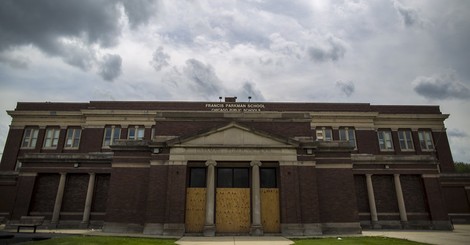Your podcast discovery platform
Curious minds select the most fascinating podcasts from around the world. Discover hand-piqd audio recommendations on your favorite topics.

piqer for: Climate and Environment Global finds
Andrea is a writer and researcher based out of Chicago. Andrea has a Bachelor's degree in environmental science from The Ohio State University and a Master's in Environmental Planning and Management at National Taiwan University, where she specialized in climate adaptation and urbanization. She writes for TaiwaneseAmerican.org, and sends out a biweekly newsletter which includes articles on politics, environment, identity, and intersections of race, class, and gender (http://eepurl.com/bPv-F5).
What Happens When Students Believe In The Myth Of Meritocracy?
“Students who are told that things are fair implode pretty quickly in middle school as self-doubt hits them,” says Xian Franzinger Barrett, a teacher on the south side of Chicago, where many students are fighting systemic issues of racism and poverty. As it turns out, a new study finds that this sentiment is true, that "traditionally marginalized youth who grew up believing in the American ideal that hard work and perseverance naturally lead to success show a decline in self-esteem and an increase in risky behaviors during their middle-school years". Believing in meritocracy, or that merit and hard work are always rewarded, leads to negative outcomes for students who come from disadvantaged groups as their experiences come directly up against the idea.
The study asked students questions about meritocracy, their participation in risky behaviors, and perceived discrimination. These questionnaires were given out three times over the course of middle school, roughly ages 11-13. The results showed that belief in meritocracy could change a student's high self-esteem and good behavior in a year or less. Researchers attribute this to a "'perfect storm' in which marginalized young people are experiencing more discrimination; beginning to understand the systemic and institutionalized nature of that discrimination; and starting to strongly identify as a member of a marginalized group, seeing that group as one that’s being discriminated against"."It's critical to guide young people from 'defiant resistance'—defying what they’ve learned to be untrue regarding a just and fair system for all—to 'transformative resistance'—developing a critical understanding of the historical context of U.S. society", in which educators play a huge role. Helping students understand systemic oppression and how it plays out in their lives can help them make sense of the world around them. It is crucial, for the sake of students, that educators address issues of inequality head on.
